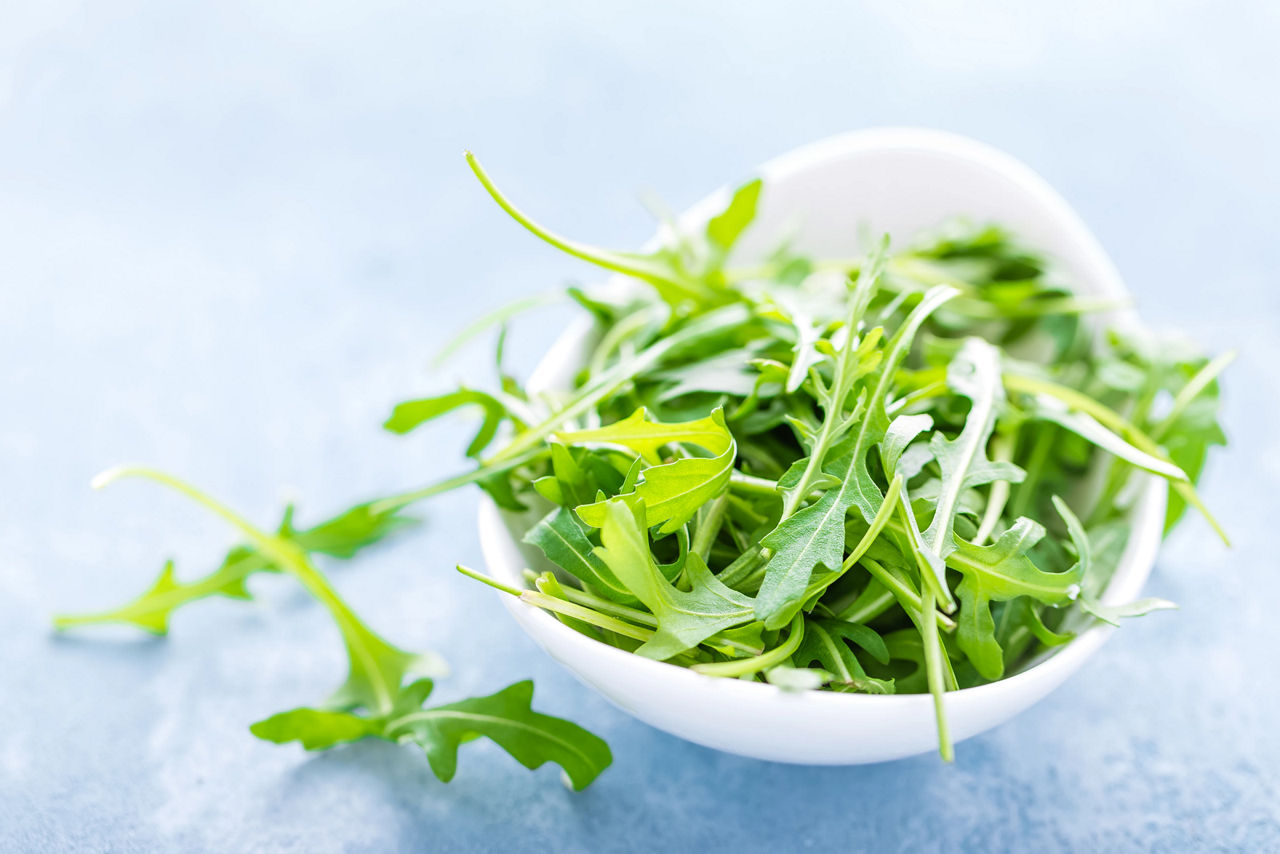Morning sickness is considered a normal part of pregnancy and affects up to 70% of mums-to-be in their first trimester in its milder forms1. It can strike at any time of the day or night and is characterised by bouts of nausea and occasional vomiting.
Morning sickness
Morning sickness symptoms
The most common signs and symptoms of morning sickness are nausea and vomiting. It can be accompanied by other symptoms of early pregnancy, such as tiredness and fatigue. There are lots of things you can do to help manage your symptoms and you’ll be glad to hear that regular morning sickness usually gets better when you’re around 16 - 20 weeks pregnant2.
For a very small number (1.5%) of women, morning sickness may extend to later in their pregnancy and they can experience more extreme symptoms. Talk to your doctor or midwife if you have any of the following symptoms, as they may indicate you have Hyperemesis Gravidarum and need medical attention:
- You feel very nauseous nearly all the time, and it’s stopping you from eating and/or drinking.
- You lose more than five percent of your pre-pregnancy weight.
- You vomit more than three times a day for more than three days.
Will morning sickness affect my baby?
As long as you’re able to eat and drink normally, morning sickness won’t affect the health of you or your baby3.
Remember, folic acid plays a really important role in your baby’s development during your first trimester, so if you’re struggling to keep your folic acid supplements down, talk to your doctor or midwife.
If you are unfortunate enough to suffer with Hypermesis Gravidarum, then this can have an impact on your baby in terms of growth and birthweight. It’s really important that you do not feel inhibited in asking for help from your GP or the hospital if you feel really unwell and are unable to eat and drink enough to nourish yourself or your baby. It’s okay to need treatment several times before you finally feel better, and there are several medicines which are effective and will not harm your baby.

Common questions about morning sickness
Doctors aren't entirely sure exactly what causes morning sickness. Currently, the most evidence exists for the placenta and appetite hormone GDF15 as playing a role in the etiology of hyperemesis gravidarum (HG). However, recent studies in twins showed that severity and duration of NVP are highly genetic8. Family history of HG leads to a threefold increased chance of the condition occurring among offspring9.
Reports of additional factors that may be associated with an increased risk of developing or increasing the duration of HG including a history of it in a previous pregnancy, a family history of severe nausea/vomiting in pregnancy, younger maternal age, high body weight (obesity), no previous completed pregnancies (nulliparity), carrying multiples, a first-time pregnancy, allergies and a restrictive diet.
Morning sickness isn’t a prerequisite of pregnancy. Many women enjoy a healthy pregnancy with no symptoms of morning sickness at all.
Morning sickness usually starts during your first trimester, when you’re four to six weeks pregnant5. Often, it’s one of the first indications that you’re pregnant.
Symptoms peak around week 9, to week 11, when your levels of the pregnancy hormone, human chorionic gonadotropin, are at their highest2. For some, pregnancy sickness can continue as long as 20 weeks, and acid reflux from the second trimester onwards can also cause nausea and vomiting.
As with many things in pregnancy, this can be different for everybody. It could last for days or it could last for months. However, if your pregnancy sickness symptoms last beyond 12 weeks, talk to your midwife or doctor.
Despite its name, morning sickness can come and go at any time of the night or day. You may find it’s worse at particular times of the day, and you may even experience it on and off throughout your pregnancy.
Some women feel constantly nauseous throughout the day which can make day-to-day life a challenge. There are lots of things you can do to help manage your symptoms, and of course, if you have any concerns, don’t hesitate to speak to your midwife or GP.
As with lots of early pregnancy symptoms, this is different for everybody. Some women expecting twins or multiple babies experience a lot of morning sickness, others don’t experience any at all6.
Morning sickness remedies and relief
No two mums experience pregnancy sickness in the same way, so what relieves the symptoms for one person may not work for another.
If you’re experiencing mild morning sickness, self-help remedies may be enough to help you manage your symptoms. But if you’re suffering from more severe symptoms, you may need medication.
How to cope with morning sickness
While it may not be easy, especially if you have other children and/or a full-time job, it’s important that you lie or sit down when feeling sick until your nausea’s passed.
Look for a pattern of symptom-free times of day and then aim to eat, drink and be active during these times. For regular ‘morning sickness’ most women will find their pattern if they keep a diary. However, if you have continuous moderate to severe symptoms this won’t be possible.
If you normally manage two slices of toast for breakfast, try half a slice every 15 minutes to spread it over an hour. This isn’t always practical if you’re busy, but with a bit of preparation, and a bag full of healthy snacks, it really can help.
These can often result in acid reflux, leading to an increase in nausea and vomiting.
Which foods help with morning sickness?
There’s no hard and fast rules about which foods will help, as everyone’s experiences of morning sickness are different. The best thing to do is experiment and find what works for you.
- You may prefer to eat bland foods like dry toast, nuts or crackers that are easy to digest.
- Foods that are high in carbohydrates and low in fat, such as wholegrain bread, rice, and pasta, can help satisfy your appetite and help regulate your blood sugar levels.
- If the smell of hot meals makes you feel queasy, try eating cold foods rather than hot ones. Raw vegetables like carrot sticks can help you top up on key vitamins. Or why not try a handful of berries?
- Making soups with different proteins and vegetables can be helpful in getting different nutrients and is often lighter on the stomach than a cooked meal.
As always aim for a healthy, balanced pregnancy diet whenever possible. Or why not try these nutrient dense superfoods?

Is ginger good for morning sickness?
If you mention you’re experiencing morning sickness someone’s bound to suggest ginger. There’s anecdotal evidence that mild-to-moderate nausea and vomiting may be helped by taking 1,000 mg of pure ginger root extract each day7.
However, in practice, many find ginger can make their symptoms worse due to its strong taste. Ginger can also increase acid reflux, leading to further discomfort.
Ginger-flavoured products don’t usually have enough ginger in them to have any effect, and sweet things like ginger biscuits can have high sugar content, which is best avoided while pregnant.
Which foods make morning sickness worse?
There’s not a definitive list of foods that make morning sickness worse as everyone has different triggers. Common triggers are spicy foods, oily foods, and foods with a strong smell and caffeine.

Morning sickness and your mental health
Pregnancy sickness can take a toll on your mental and physical health, especially if it’s severe and you find yourself stuck indoors for a few weeks.
Try to remember that it’s not your fault if you’re sick, especially if you’re diagnosed with Hyperemesis Gravidarum which requires you rest as much as possible.
If you’re feeling too queasy to move or sit up, listening to the radio, podcasts or audiobooks are all great ways to take your mind off things and keep yourself occupied.
If you are in and out of hospital, try and enlist help from friends and family so that you don’t have the added stress of worrying about any children you already have. Also if you suffer with severe nausea and vomiting in one pregnancy, you are more likely to get it in subsequent ones. It can be helpful to make a plan with your GP, work and partner before getting pregnant so that you can access treatment and help earlier.
Read next

Need some help?
You can get quick answers to common questions in our FAQs.
Alternatively, if you need help with general pregnancy or baby advice, or maybe on using or ordering our products - our expert team are always on hand to talk about feeding your baby.
- Lee NM, Saha S. Nausea and vomiting of pregnancy. Gastroenterol Clin North Am. 2011;40(2):309–vii.
- NHS. Vomiting and morning sickness in pregnancy. [Online] Available at: https://www.nhs.uk/conditions/pregnancy-and-baby/morning-sickness-nausea/ [Accessed October 2020]
- Koren G et al. The protective effects of nausea and vomiting of pregnancy against adverse fetal outcome – a systematic review. Reprod Toxicol 2014;47:77-80.
- NHS Start 4 Life. Week-by-week guide to pregnancy. [Online] Available at: https://www.nhs.uk/start4life/pregnancy/week-by-week/1st-trimester/week-9/ [Accessed October 2020]
- NHS. Signs and symptoms of pregnancy. [Online] Available at: https://www.nhs.uk/conditions/pregnancy-and-baby/signs-and-symptoms-pregnancy [Accessed October 2020]
- NHS. Your healthy twin pregnancy. 2019. [Online] Available at: https://www.nhs.uk/conditions/pregnancy-and-baby/twins-healthy-multiple-pregnancy/ [Accessed October 2020]
- Pregnancy Sickness Support. Ginger is ineffective for hyperemesis gravidarum, and causes harm: an internet based survey of sufferers. 2015. [Online] Available at: https://www.pregnancysicknesssupport.org.uk/documents/research%20papers/ginger-article.pdf [Accessed October 2020]
Last reviewed: 23rd July 2023
Reviewed by Nutricia’s Medical and Scientific Affairs Team



